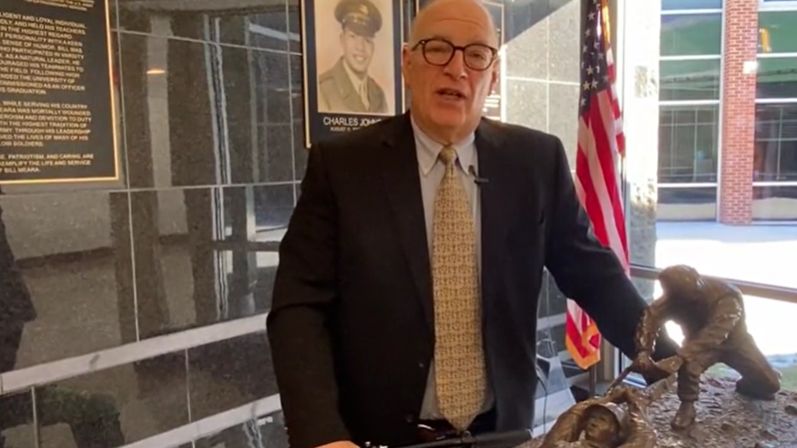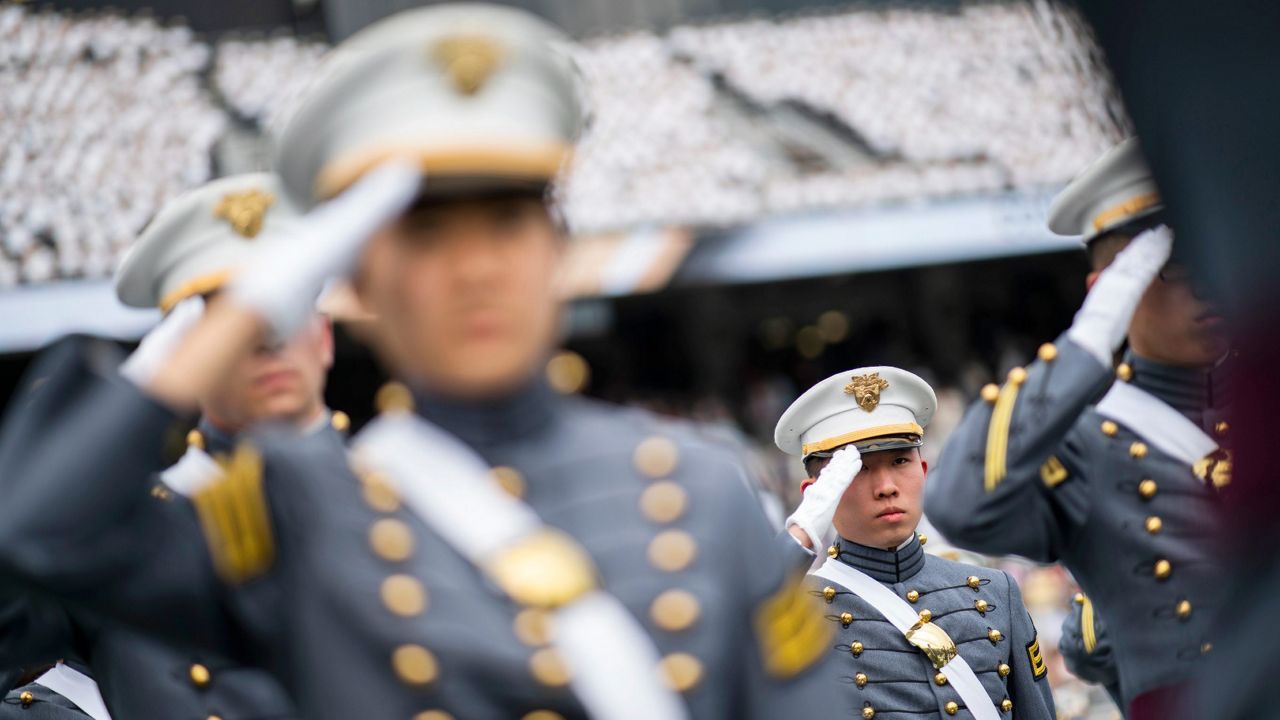A controversy has erupted at West Point over a plaque containing symbols of hate and racism.
A close look at a section of a triptych that’s been on display over the military academy’s science center since the 1960s shows a hooded figure and the words “Ku Klux Klan” written out.
The panel is making headlines thanks to a new report just released by a U.S. congressional panel tasked with making recommendations on Confederate markers at military institutions like West Point.
The naming commission recommended the U.S. Department of Defense take action on KKK signage on military bases.
"The Commission agreed that a plaque commemorating the Ku Klux Klan – which, as stated in the report, clearly has ties to the Confederacy – is simply inappropriate at a military service academy, or on any military installation," Stephen Baker, director of public affairs for the Naming Commission, said in a statement Wednesday afternoon.
The special commission said it couldn't directly make a call for removal because it falls outside of its jurisdiction, but commissioners decided to include it as an addition to their report to provide awareness of its existence to Congress and the secretary of defense, Baker said.
What You Need To Know
- New report by a special congressional commission flagged a racist plaque on West Point's campus at the entrance of its science hall
- The controversial plaque has the words "Ku Klux Klan" and an image of a hooded figure on it; it has been on display at West Point since the 1960s
- The Naming Commission says it can't directly make the call for removal, but it is recommending the Department of Defense take action on KKK signage on military bases
The KKK was established after the Civil War by Confederate veterans as a way to resist Reconstruction efforts and exhort white supremacy.
In a statement, the U.S. military academy’s public affairs office said the artwork was originally dedicated to West Point graduates who served in World War II and Korea.
“West Point’s mission is to develop leaders of character who internalize Army values, the ideals of duty, honor, country and the Army ethic. As a values-based institution, we are fully committed to creating a climate where everyone is treated with dignity and respect," the statement says. "West Point does not accept, condone or promote racism, sexism or any other biases. The academy continues to graduate its most diverse classes ever with respect to ethnicity, gender, experience and background.”
The Pentagon also responded.
"We’re not in a position to discuss any implementation details at the local level yet," Defense Department spokesperson Bryce Dubee said. "The Army will begin working with the installations on their specific implementation plans when additional guidance is received from the Secretary of Defense."










